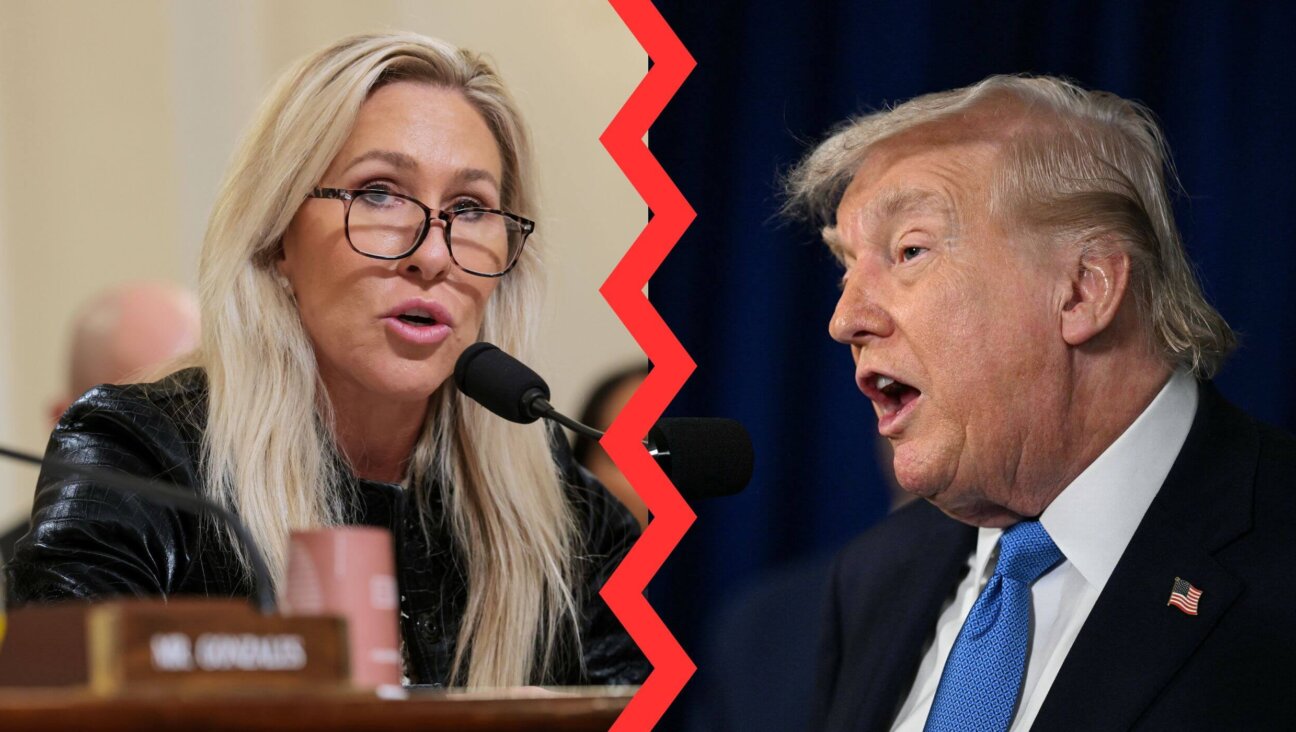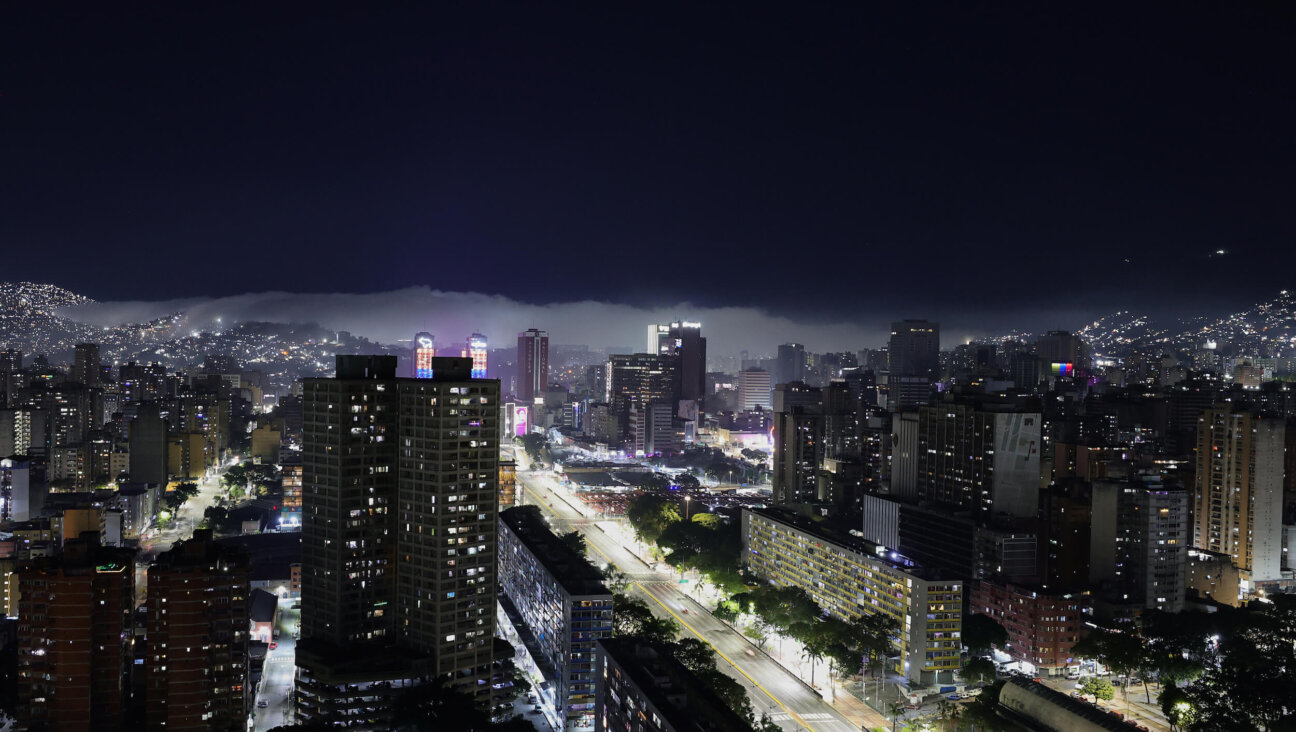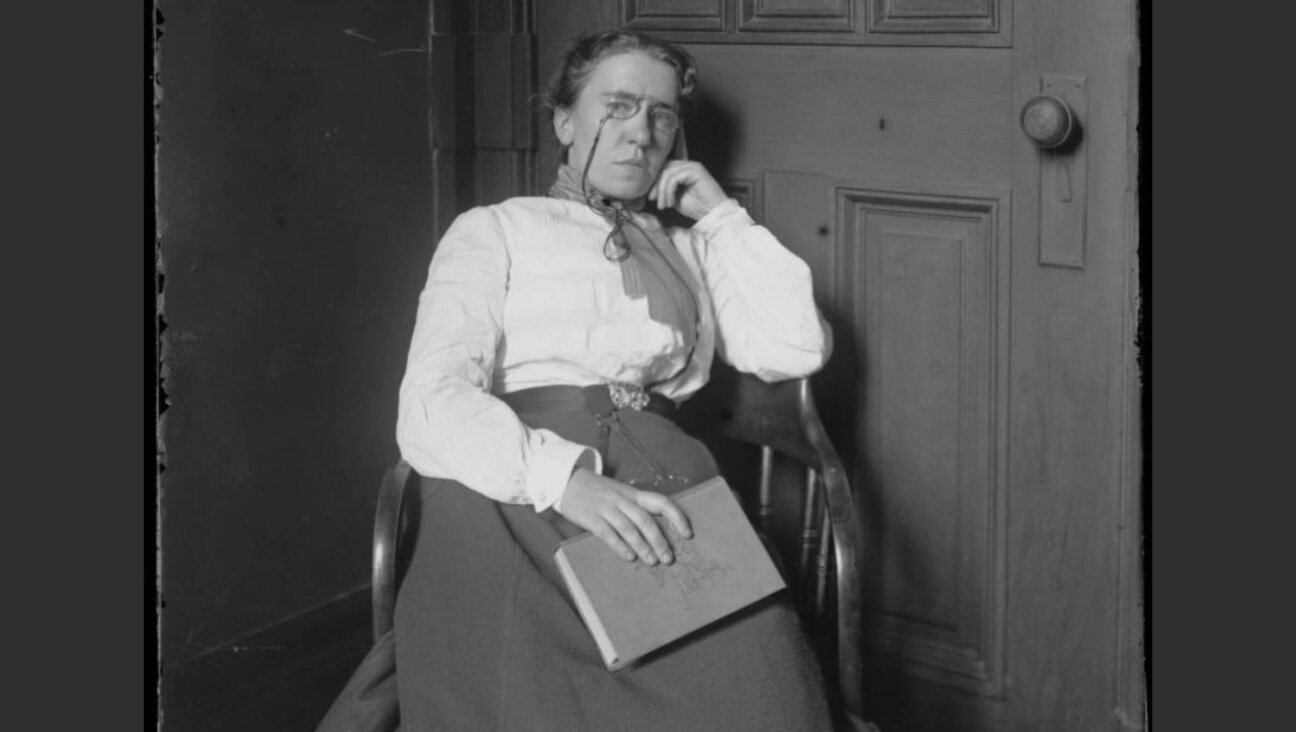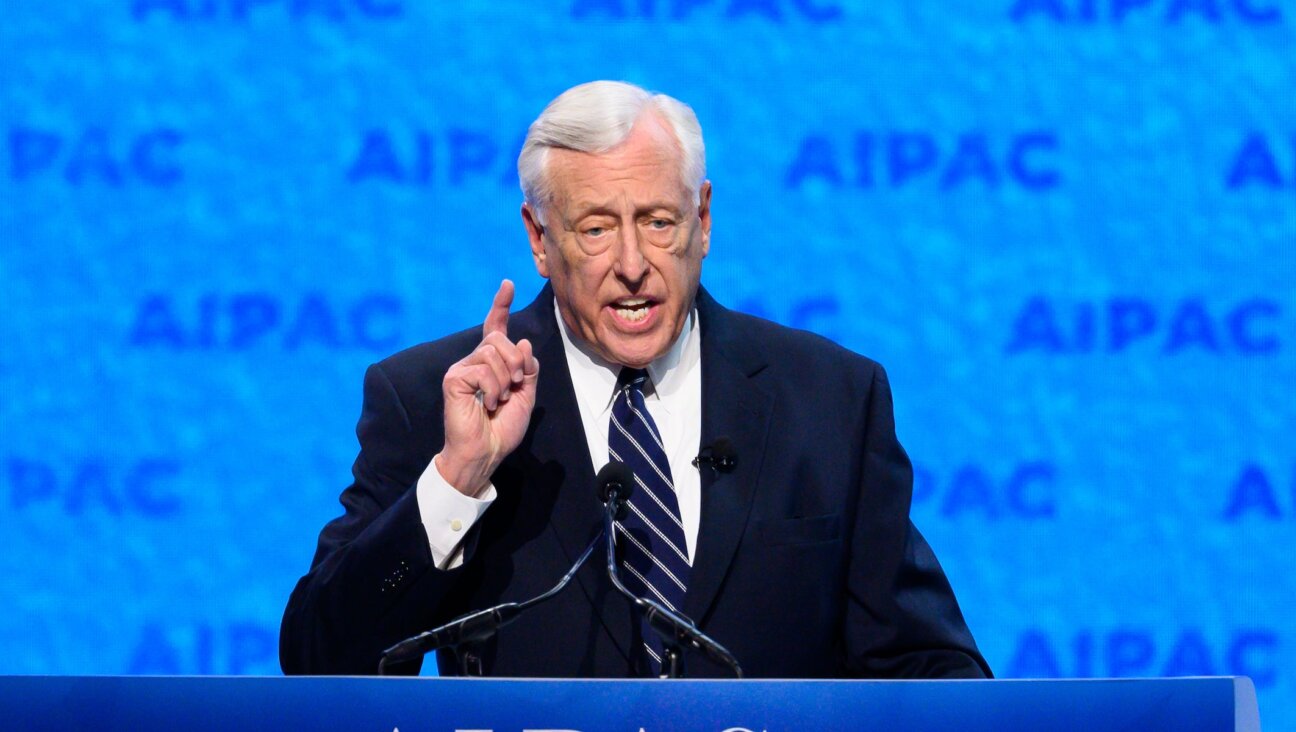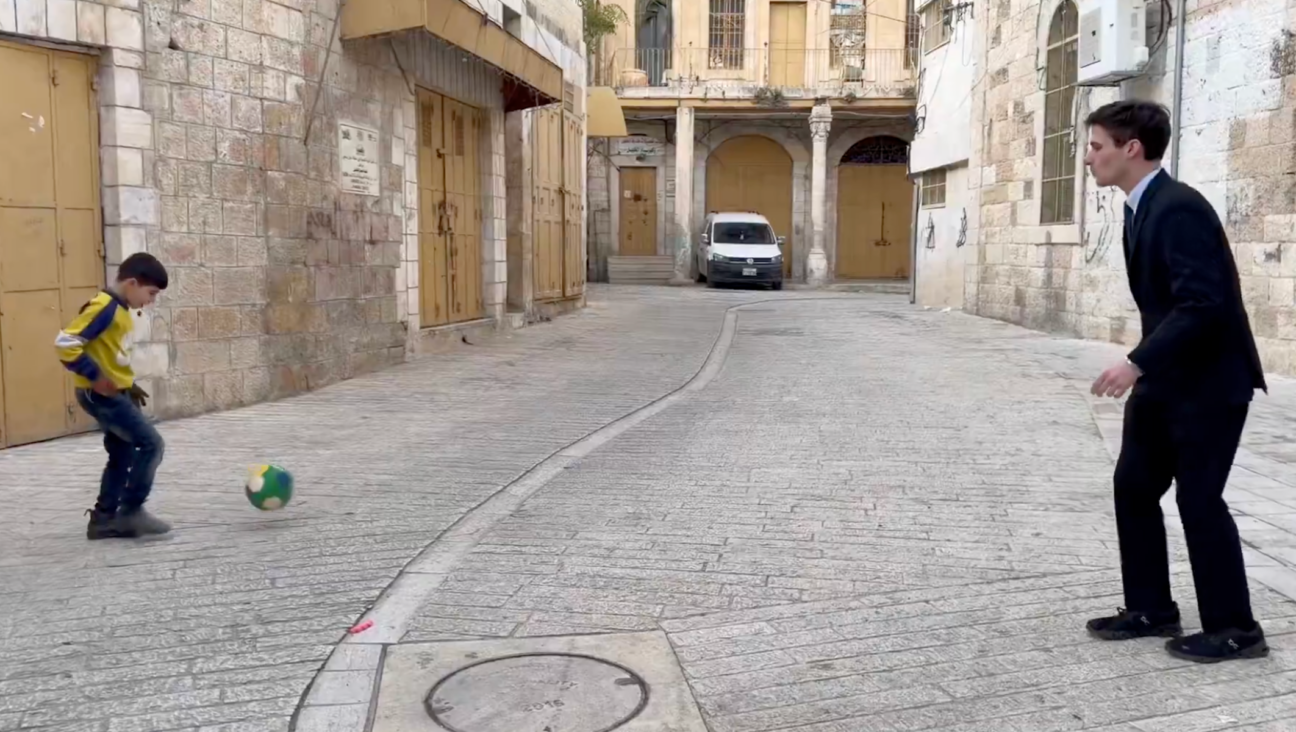Why Was Israel Missing From the Democratic Debate?

Image by Getty Images
They discussed gun control and ground troops; college debt, climate change and capitalism; what to do about Syria and how to counter Vladimir Putin. They treated the nation — those who were watching, anyhow — to a quick course in the Glass-Steagall Act of 1933.
For two and a half hours on October 13, the five Democratic candidates for president debated all manner of domestic and foreign issues in a spirited exchange where the questions were more productive and the answers more substantive than anything we’ve seen from the Republicans until now.
But there was one subject that never made it to prime time: Israel.

Image by Anya Ulinich
Not once was the Israeli-Palestinian conflict raised, either by direct question or by the kind of changing-the-subject tactic so common in these sparring contests. Jim Webb managed to reference “our greatest ally Israel” in the midst of a long-winded answer, but no one else on stage in Las Vegas chose to even tiptoe toward the part of the Middle East that had been a major priority just a few years ago. Donald Trump’s name came up more frequently.
And yet, for American Jews like myself, the terror that began in Jerusalem and is spreading around Israel and the Palestinian territories is front and center in our minds. We watch anxiously from afar as the news of another stabbing and another death scrolls across our screens, wondering where it happened and if we knew the victim, and knowing that in a small nation, the wound runs wide.
Why was this ignored? How can the violence disrupting America’s closest ally in a volatile region not even warrant an expression of concern? How come the candidates didn’t offer a policy prescription, when they are eager to spout off a five-point plan about every other problem on the planet?
I ask those questions, but I already know the answers.
It’s because it isn’t at all clear what the United States can do anymore.
The absence of discussion among those Democratic presidential candidates mirrors an overall silence in Washington among members of both parties. As my colleague Nathan Guttman has detailed, both the White House and Congress have been muted in their response, taking a wait-and-see approach while they are distracted by other complicated challenges in the region and elsewhere in the world.
Guttman quotes the ever-quotable Aaron David Miller, a former State Department negotiator, as saying: “It’s the cruelest of ironies that even when the Palestinian problem asserts itself with this surge of violence, people are fatigued and exhausted by it. It now resembles an eternal conflict between Israelis and Palestinians with knives and stones and guns, which has not risen to the level that will cause the parties to intervene.”
The eternal conflict has left me in internal conflict. I shudder to think of where this uncontrolled violence will go, driven as it is by furious young Palestinians armed with only kitchen knives, appearing to ask for their own deaths as they murder others. I can only envisage a spiral downward, with more forceful Israeli military responses that serve to prompt more ferocious outbursts, with the list of victims and martyrs growing on both sides, fueling the rage, again and again.
I want the United States to do something, to mediate or intervene, to engineer a ceasefire and force the sides to negotiate. The United Nations is useless — if it hasn’t been able to address the global calamity caused by the Syrian civil war, I’m not sure why it’s still in business. The Europeans are distracted by refugees and economic woes. The wealthy Arab nations won’t even help their own. The vaunted Quartet has disappeared down a rabbit hole. Even the Pope seems to have given up. Who else but us?
But then a broken record goes off in my head. Really? This again? I can’t honestly advocate another round of shuttle diplomacy by the tireless Secretary of State John Kerry, who went back and forth between Jerusalem and Ramallah a thousand times and still couldn’t dislodge the intransigence that has calcified political discourse in both capitals.
Israeli Prime Minister Benjamin Netanyahu has been in office longer than any other Israeli leader except David Ben-Gurion, and still has not put forward a plan to resolve the decades-long occupation he rarely acknowledges even exists. Palestinian President Mahmoud Abbas has shown himself unwilling or unable to control the burning rage of his people, who are fed up with a leadership that hasn’t delivered political or economic relief.
I close my eyes and cannot envision a future proposed by either man. They leave no legacy but a deteriorating status quo.
No wonder Hillary Rodham Clinton, Bernie Sanders and the other Democratic candidates didn’t want to discuss the conflict, even though American Jews have been and likely will remain their natural electoral allies. What is there to say?
But then I think of the stories I hear from Israel, where everyday life has been perverted by fear of a deadly unknown. I imagine a similar torrent of reactions in Palestinian neighborhoods. Ordinary people don’t deserve this. Until there is an obvious way forward, until the root causes of occupation and insecurity are finally addressed, at least both sides should do everything possible not to make matters worse.
Stop building and adding to settlements. Stop incitement about the Temple Mount. Start practicing genuine non-violent resistance. The last two intifadas did not bring Palestinian statehood one iota closer, so there’s little evidence that a new one will.
The conflict won’t come back before the world stage until Israelis and Palestinians raise it themselves. All the rest of us can do is push for that to happen — and worry and wait.


